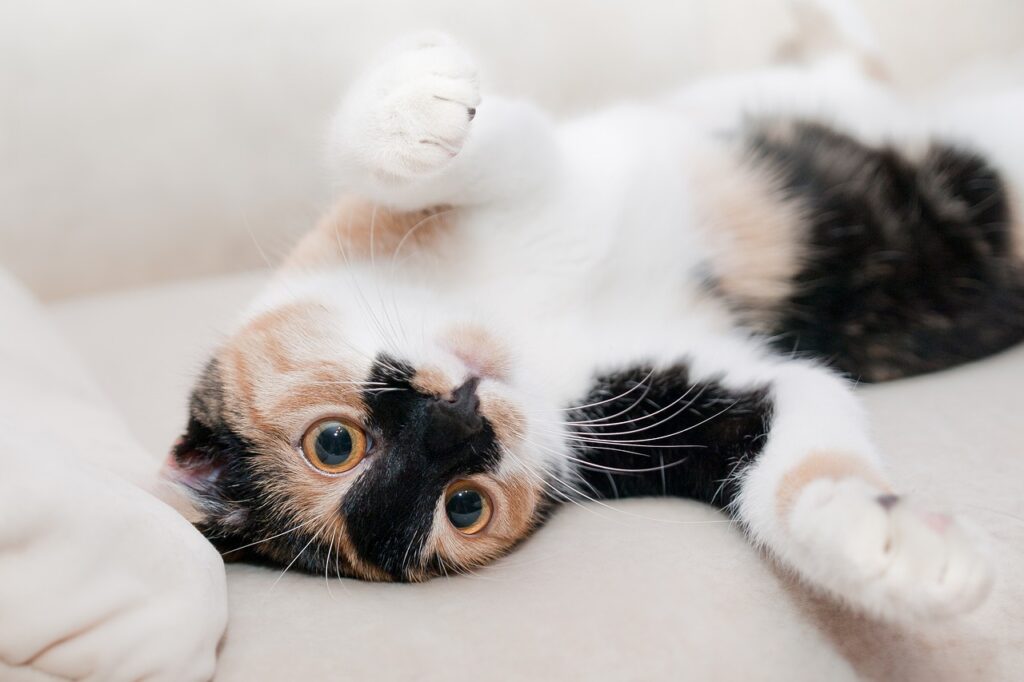Can Cats Eat Grass? – Yes, They Can
It might surprise you, but the answer is yes, cats can indeed eat grass. In fact, you might have seen your feline friend munching on your lawn or houseplants from time to time. This is a natural behavior for cats, and it’s generally considered safe. It’s thought that eating grass might help them with digestion or act as a source of dietary fiber, although cats are obligate carnivores. However, it’s critical to ensure the grass they consume hasn’t been treated with pesticides or other chemicals that could harm them.
Can Kittens Eat Grass?
The response here is also a yes, but with more caution. While kittens can mimic adult cats and ingest grass, their bodies are much smaller and more sensitive. It’s vital to supervise your kitten to ensure they don’t eat too much and to watch for any adverse reactions, as their digestive systems are still developing. Also, keep in mind that certain types of plants can be toxic to cats, so it’s essential to know the difference between safe and unsafe greenery.
Things to consider when feeding grass to kittens?
When introducing grass to kittens, make sure it’s clean and free of any chemical treatments. Start with small amounts to see how they handle it. Monitor them closely for signs of discomfort or choking, as their curiosity can sometimes lead to them biting off more than they can chew. If any negative reaction occurs, contact your veterinarian promptly for advice.
Nutritional Benefits of Grass for Cats – Why Grass is Good for Cats?
Fiber
Grass contains dietary fiber, which can potentially help with your cat’s digestion. It may aid in moving hairballs through the digestive tract and help with relieving constipation.
Folic Acid
Grass is a source of folic acid, a vitamin that supports a cat’s oxygen levels in the blood and assists in growth and overall health.
Natural Laxative
Consuming grass has a natural laxative effect, helping to maintain regular bowel movements and preventing the build-up of hairballs.
Instinctual Behavior
Eating grass can be a part of your cat’s instinctive behaviors, fulfilling a natural need to chew and interact with nature.
Vomiting Induction
Some experts believe cats may eat grass to help themselves vomit when they have an upset stomach or have consumed something unpalatable.
Potential Allergies: Can Cats Be Allergic to Grass?
It’s relatively uncommon for cats to be allergic to grass. However, they can develop allergies or sensitivities to pollen or other allergens that may be found on grass. If you notice your cat showing symptoms after eating grass, they might be reacting to these allergens rather than the grass itself.
Symptoms of Grass Allergies in Cats
- Sneezing and Runny Nose: Look for frequent sneezing and nasal discharge, as these can be signs of an allergic reaction.
- Excessive Itching: Notice if your cat is scratching more than usual, which might indicate discomfort from an allergy.
- Skin Irritation: Check their skin for redness, bumps, or sores, which are common symptoms of allergic reactions.
What to Do If Your Cat Shows Symptoms?
- Consult a Vet: If you notice any allergy symptoms, schedule a visit to the veterinarian for proper diagnosis and treatment options.
- Identify the Allergen: Your vet might recommend allergy testing to determine the exact cause of the symptoms.
- Provide Relief: Follow your vet’s instructions. They may prescribe antihistamines or other medications to ease the symptoms.
Recommended Amount: How Much Grass Can a Cat Consume?
There is no specific recommended amount of grass for cats, but it’s best to let them graze modestly. Too much grass can cause vomiting, so it’s wise to allow your cat a few nibbles rather than large quantities.
Things to Consider When Feeding Grass to Cats
Always make sure that the grass they have access to is free from chemicals and pesticides. If you grow indoor grass, ensure it is a cat-friendly variety. Limit their consumption to prevent excessive vomiting or gastrointestinal upset.
How to Feed Grass to Cats: A Quick Guide
Offering grass to your cats can be a treat and beneficial for their health. Whether it’s an indoor patch or a nibble in the garden, cats often enjoy the texture and the engagement with nature.
Planting Indoor Grass Trays
Buy a tray of cat grass from a pet store, or plant your own using seeds. Ensure it’s a safe species for felines, like wheatgrass, and keep pesticides away from it.
Controlled Garden Access
Allow your cat supervised access to a safe and enclosed yard. Regularly check the lawn to ensure it’s free from harmful treatments or plants.
Cat Grass Kits
There are commercially available cat grass kits that provide everything you need to grow a safe greens patch for your kitty indoors.
Conclusion
So, can cats eat grass? Absolutely, it’s a natural behavior for them. Grass can provide some nutritional benefits for cats, though the extent of these benefits can vary. Always be cautious to ensure the grass they consume is safe, and if any adverse reactions occur, consult your vet. By following these guidelines, you can provide a little bit of nature for your indoor cat, keeping them entertained and potentially aiding in their digestion.

